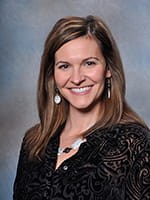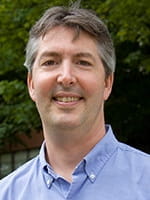Faculty members provide straightforward solutions to improve the health of our families.
Our children are tomorrow’s leaders. Physical health, self-care, and nutrition are critical to ensuring their academic and professional success. Dr. Melanie Storms led a discussion with three faculty members who are experts in fitness, counseling, and nutrition to tease out tactics we can implement to positively affect the health of our kids and, ultimately, our communities.
Meet the Experts
Moderator
Dr. Melanie Storms is the vice president of the College of Social and Behavioral Sciences and the College of Health Sciences. Prior to working in academia, Storms was an administrator and care provider in community mental health and hospital settings. Both her current and previous roles focused on the benefits of interdisciplinary approaches to promote well-being.
Speakers



Discussion
STORMS
How important is it for parents to set positive examples as role models for leading a healthy lifestyle?
RUSH-WILSON
Parents are the first role models children have. They emulate our behavior. So, as parents, we must realize the messages that we send to our children are powerful, including the messages about eating and taking care of our bodies. Consider having discussions with your children about food choices—and also extending those same honest conversations to yourself. Think about why you’re eating and what you’re eating. If you have a sudden craving for cookies, is it really that you’re hungry? Is your blood sugar low because it’s been a while since you’ve eaten? Just be really honest and clear with yourself. Have a great relationship with yourself and food and try to support others in developing that kind of relationship, too.
STORMS
Dr. Radak, let’s talk a little more about nutrition. What are a few ways parents can set positive examples of healthy nutrition for their families?
RADAK
Eating together is a great way to enhance community within a family but also has health benefits. Sharing meals at breakfast or dinner are great opportunities to “walk the talk” by showing appropriate food portions and talking about why certain foods are better for our health.
STORMS
Communication and nutrition are obvious cornerstones, but many people lead fairly sedentary lives. We may drive to work, sit at a desk all day, and sit down in front of the TV after dinner. Dr. Armstrong, what are the leading barriers to exercise? How can we overcome them?
ARMSTRONG
The leading barriers to exercise are lack of time and self motivation. The first strategy I suggest is to set goals that follow the SMART method: They should be specific, measurable, attainable, relevant, and time-oriented. For example, I might put a reminder on my calendar to get up and move around for 10 minutes every three hours. Small goals like that will help us get started. I encourage all people to put fitness activities on their calendar every day just like any other meeting, lunch date, class deadline, or conference call. It should be the most important appointment of your day. A plan will help you make gradual, steady progress.
STORMS
Even if we make enough time for exercise, the average family is still likely to watch television. Dr. Radak, what is the relationship between television viewing and fruit and vegetable intake?
RADAK
American surveys indicate that television watching is the top leisure activity and the most common activity after sleeping and working. Numerous studies suggest that the more television children watch, the higher their risk for obesity. Children often reach for a snack, then sit to watch television, which can be a hard habit to break. One step parents can take is to offer healthy snacks. Fresh fruits and vegetables are packed with nutrition and are low in calories.
STORMS
Parents are one set of role models for children. But their peers are another. Dr. Rush Wilson, why is it important that children have social support networks among their peers? How can you ensure that healthy networks develop for your children?
RUSH-WILSON
If kids are able to access community resources like a running club or school activities, it allows them to be active and connect with other kids their age who are doing the same things. Team sports are wonderful in that respect. In addition, it’s important for students and children to talk about their nutritional interest, what they like to eat with their peers and with other kids. My daughter regularly comes home for lunch. She and her best friend recently planned to make lunches for each other, so I bought the ingredients. I monitored what they made and ate, which allowed me to praise the decisions that they made.
STORMS
Dr. Armstrong, I know that running is a part of your life. Why were you motivated to start a running program called YOUth FIT in your community? How can people find motivation to exercise regularly?
ARMSTRONG
When I graduated from college, I didn’t have enough money to purchase a gym membership. The easiest thing for me was to keep running. I also began coaching college cross-country teams. The director of the local parks and rec watched our races and was blown away by the sport since it’s so simple and such a great fitness activity. He asked me to send a proposal for a running program. Six months later I started YOUth Fit, a summer running program for kids 7 to 17 that uses local parks and targets kids who don’t have access to fitness facilities. Three years ago, I created a spin-off during the school year called Kids on the Run. This program creates running clubs for elementary school children. The past two years, we’ve had more than 1,200 kids participate each year. Once the kids get excited about running, they want their parents to do it with them. I’ve seen it impact the entire family: Parents then see how important it is to get involved with their children. We’ve seen weight loss and fitness improvement in the parents as well. No matter what you choose to do, set personalized goals to stay motivated and committed to a healthy lifestyle.



